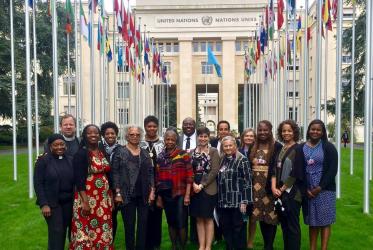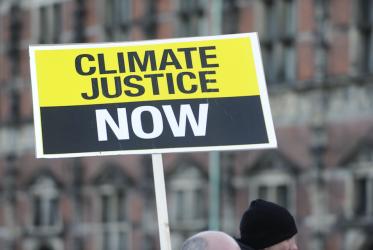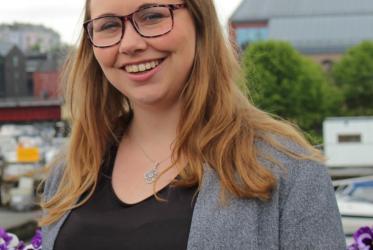Displaying 61 - 80 of 120
Re-engineering life forms: Church forum raises concerns
09 November 2017
“The work of truth-telling has to happen”
28 September 2017
WCC participates in UN panel discussion on climate ethics
15 February 2017
New videos help congregations hasten HIV response
20 October 2016
Hielke Wolters: Apostle of mission strategies
01 August 2016
WCC conference explores ecological injustice in Uganda
21 April 2016
COP21: WCC reaffirms commitment to address climate change
15 November 2015
“European solidarity must be strengthened”
29 October 2015











